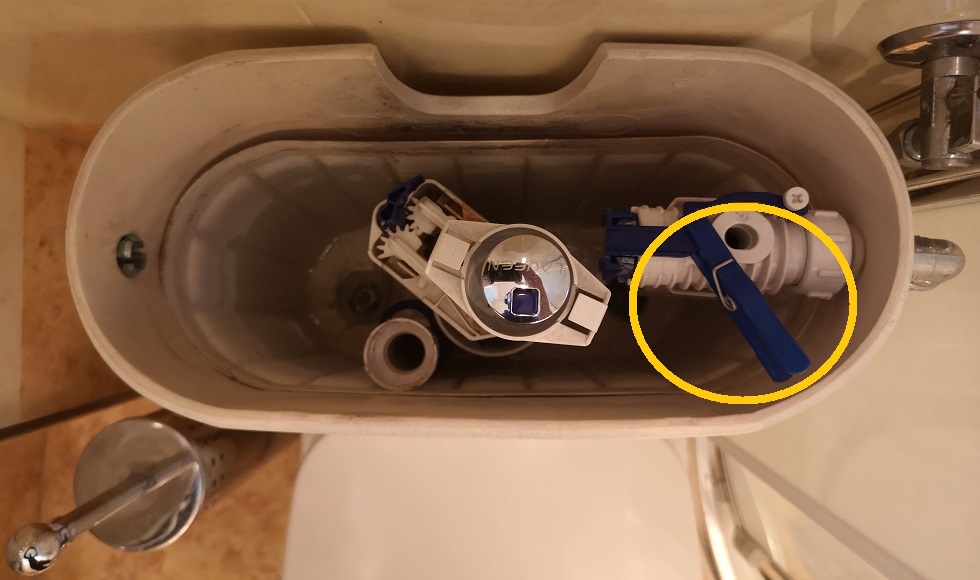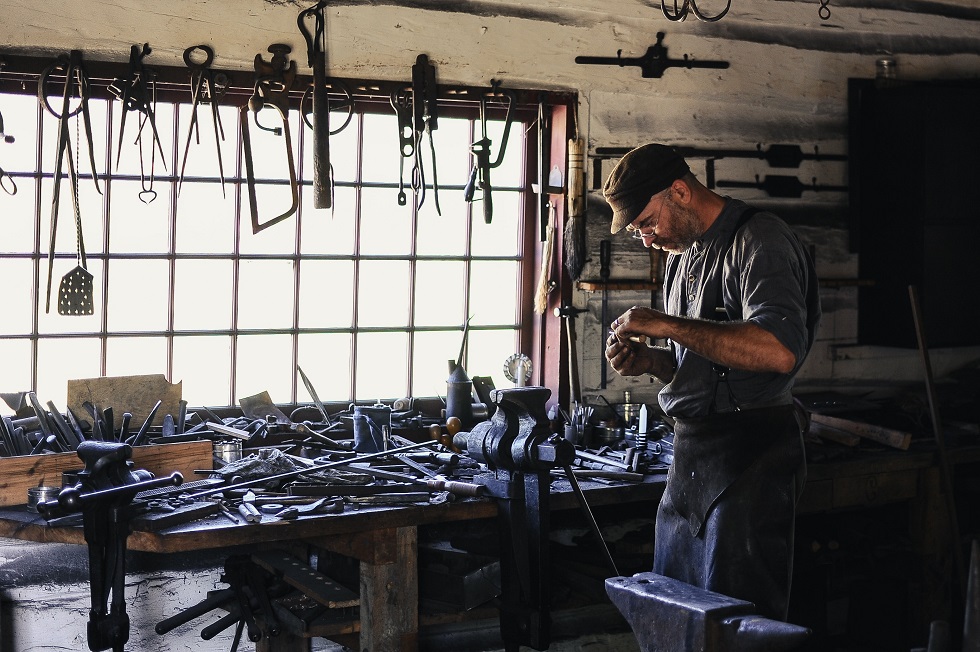Despite Pandemic, 26,000 Croatians Moved to Germany in 2020
ZAGREB, 29 March, 2021 - In 2020 Germany saw the lowest increase in the number of foreigners in the last ten years, however, despite the pandemic, more than 26,000 Croatians emigrated to Germany last year, show statistics published by the Federal Statistical Office in Wiesbaden on Monday.
The net increase in the number of Croatian citizens with residency in Germany in 2020 was 11,955 to 426,845.
From 1 January to 31 December 2020, 26,335 Croatian nationals emigrated to Germany while 10,305 Croatians moved out. Around 1,000 Croatian citizens obtained German citizenship and were consequently removed from the register of foreigners.
Croatians are the sixth most numerous foreign community in Germany, after Turks, Poles, Syrians, Romanians and Italians.
The number of Croatians with residency in Germany has almost doubled since Croatia joined the EU in 2013.
In 2012, the last year before Croatia's accession to the EU, there were 224,971 Croatians in Germany.
In 2020, the number of people with a foreign passport in Germany rose by 262,000 while in 2019 it grew by 376,000.
Statistics for 2020 show that immigration from EU countries remained stable but immigration from third countries slowed down significantly, which is associated with difficulties related to the coronavirus pandemic.
At the end of 2020, roughly 11.4 million foreigners lived in Germany.
The number of residents from the Western Balkans grew last year as well.
Currently 211,000 nationals of Bosnia and Herzegovina live in Germany, which is around 7,000 more than in the previous year, as do 242,000 Serbians, around 5,000 more than in 2019.
To read more news from Croatia, follow TCN's dedicated page.
Germany Declares Four Croatian Counties Safe for Traveling
March 5, 2021 – As of March 7, 2021, four Croatian counties – Istria, Krapina-Zagorje, Požega-Slavonia, and Bjelovar-Bilogora – won't be on the German list of risky areas anymore.
As reported by Romeo Draghicchio, the Croatian National Tourist Board director in Germany, the German Robert Koch Institute of Health removed four Croatian counties from the list of risk areas. Counties that, according to German estimates, are no longer risky are: Istria County, Krapina-Zagorje County, Požega-Slavonia County, and Bjelovar-Bilogora County.
Accordingly, the German Ministry of Foreign Affairs also lifted the negative warning for travel to these counties. This means that when returning to Germany from the mentioned four Croatian counties, a negative PCR test does not have to be presented and no quarantine is required.
The said decision shall enter into force on March 7, 2021.
The news is also listed on the Croatian Interior Ministry's (MUP) website.
"According to the notification from the Robert Koch Institute and the Foreign Affairs Ministry of the Federal Republic of Germany, dated March 7, 2021, the following counties are not on the list of risky areas: Istria, Požega-Slavonia, Bjelovar-Bilogora, and Krapina-Zagorje. A warning has been issued for other counties and the City of Zagreb, asking citizens not to travel if it is not necessary," reads the notice on the MUP's website.
In these four Croatian counties, a small number of people infected with coronavirus were recorded today. Krapina-Zagorje County has seven new infections today, Požega-Slavonia County six, and in Istria and Bjelovar-Bilogora County, only one case of coronavirus infection has been recorded.
The Istria County Civil Protection Headquarters continues to call for caution and responsibility in order to maintain a favorable epidemiological situation in that Croatian county.
For the latest travel info, bookmark our main travel info article, which is updated daily.
Read the Croatian Travel Update in your language - now available in 24 languages.
German Firefighters Bring Third Convoy of Aid to Quake-Hit Area
ZAGREB, 22 January, 2021 - Forty-three German firefighters from the state of Baden-Württemberg on Friday brought the third convoy of aid to the quake-hit area in Croatia aboard 16 trucks and four vans, including 17 housing containers, firefighting equipment and construction materials.
The donation also included an ambulance.
The convoy was welcomed by a Croatian foreign ministry state secretary, Zdenko Lucić, and county fire marshal Mijo Brlečić.
The first convoy from Baden-Württemberg arrived on 2 January, bringing 110 tonnes of firefighting equipment, medical supplies and food.
The second, 23-truck convoy arrived on 8 January, bringing firefighting equipment, construction material, clothes, hygiene products and food. The donation included five vehicles for firefighters in the quake-hit area.
Fire marshal Brlečić thanked the German firefighters for their donation.
Germany Donates Vehicles for Croatian Border Police Worth €835K
ZAGREB, Dec 11, 2020 - German Ambassador Robert Klinke on Thursday presented Croatian Interior Minister Davor Bozinovic with a German donation of ten vans and ten other vehicles for the Croatian border police worth €835,000.
"Since 2000, the German Federal Foreign Ministry has donated to Croatian police €3.1 million worth of material and technical means, and we are grateful for that," Bozinovic said, adding that Germany was among those most familiar with the work of the Croatian border police.
He said German Interior Minister Horst Seehofer and the German government had publicly said a number of times that they were grateful for everything Croatian police were doing to protect the Croatian border, the EU's longest external order, first and foremost in preventing illegal migrations.
"If Croatian police did not prevent illegal migrations so efficiently, they would spill further into EU territory all the way to Germany," Bozinovic said.
He said statistics indicated that the pressure of illegal migration on Croatia was constant, "clearly showing that this year, despite a two-month calm during the global spring lockdown, the migrant wave has intensified so much that it is now 42% bigger than a year ago."
Ambassador Klinke said the Croatian border, also the EU's external border, was under big migrant pressures, notably the land border with Bosnia and Herzegovina.
"We are here today to make sure that Croatian police can fulfil their responsible tasks appropriately. We wish to contribute so that Croatian police can move freely on the terrain they work on, and it's very important that they act on their terrain under Croatian, European and international law," he said, wishing for further cooperation on the bilateral front and within the EU.
The donated vehicles will contribute to mobility, effectiveness and terrain coverage in border surveillance, notably on inaccessible terrain and during migrant rescues, the Interior Ministry said, adding that they would also help to curb illegal migration and smuggling.
Google Knows about New Exodus: Ireland and Germany No Longer Most Popular, Which Country Is?
ZAGREB, October 18, 2020 - Before we decide on an important step in life, we first Google it, and in short, this is the principle on which a new scientific discipline is based: digital migration - a model for monitoring emigration through social networks.
As reported by Dalmatinski portal, the result of extensive studies completely coincides with the official data on migration, and they also provide much more information on the trends according to which more exoduses from Croatia await us.
Bewerbung, or job application in German, was searched as often this year as in Croatian.
The new scientific discipline of digital demography predicts migration trends based on what is being searched. Ireland is no longer "in", but the coronavirus and the lifting of employment restrictions in some countries, such as Austria, are bringing new trends.
"Those counties that are geographically closest to Austria, such as Međimurje or Karlovac, are most often searched for in Austria, in general, living conditions in Austria, which is again a strong indication of a new wave of emigration, probably this time to Austria", said Tado Jurić. professor of history at the Croatian Catholic University.
Even though the search engine is not lying, few have admitted to us that they have googled outside of Croatia while looking for a job.
Every fifth job seeker in Croatia is looking for a job abroad, of which 80 percent of them googled jobs in Germany.
Ten days after major corruption scandals, job searches outside of Croatia intensified, and it is not only the unemployed who are looking for a job abroad.
"We saw that based on the time when these terms are searched, it is before the working day, somewhere around half past six and around 3 pm", Juric explained.
According to statistics from the German Central Bureau of Statistics, more than 400,000 Croats live and work there, and once they do, Croatian citizens search for language learning and divorce the most.
For the latest travel info, bookmark our main travel info article, which is updated daily.
Read the Croatian Travel Update in your language - now available in 24 languages
Join the Total Croatia Travel INFO Viber community.
Germany Adds Lika-Senj County to Red List
September 24, 2020 - The Robert Koch Institute red list now includes the French regions of Center-Val de Loire, Brittany and Normandy, Lika-Senj County in Croatia, and Notranjsko-kraška region in Slovenia.
Novi List reports that on Wednesday, Germany added regions from 11 European countries to the list of high-risk areas, including Lika-Senj County, rejecting the last hope of reviving tourism at a time when many countries are threatened by a second wave of coronavirus.
The Robert Koch Institute list includes major tourist destinations such as the French regions of Center-Val de Loire, Brittany and Normandy, Lika-Senj County in Croatia, and the Notranjsko-kraška region in Slovenia.
The list also includes the capitals of Ireland, Portugal, and Denmark, the Dutch province of Utrecht, the Austrian state of Vorarlberg, most of the Czech Republic, the county of Gyor in western Hungary, and Romania's Covasna.
The inclusion in the list of risk areas usually follows when the Ministry of Foreign Affairs publishes recommendations against necessary trips to the region in question.
Germany warns against traveling to regions in the European Union where more than 50 are infected per 100,000 people per week.
Due to the spread of the epidemic, Germany has so far included Dubrovnik-Neretva, Požega-Slavonia, Šibenik-Knin, Split-Dalmatia, Brod-Posavina, Virovitica-Podravina, and Zadar counties on the list of epidemiologically risky areas in Croatia.
Declaring an area risky means that those returning from vacation must be tested for coronavirus and remain in self-isolation until they receive a negative test result.
On Wednesday, Croatia recorded 204 new cases, and the number of active cases in Croatia is 1,268. Among them, 278 patients are in hospital, of which 27 are on a ventilator. From Tuesday to Wednesday this week, 6,387 people were tested.
For the latest travel info, bookmark our main travel info article, which is updated daily.
Read the Croatian Travel Update in your language - now available in 24 languages
German Red List: Two More Croatian Counties Added to Red List
September 10, 2020 - According to Večernji, the German red list became 'richer' for another two counties. Last night Germany declared the Dubrovnik-Neretva and Požega-Slavonia counties as risk regions due to the increase in the number of cases of coronavirus infection.
As previously reported, Germany had already considered adding these two Croatian counties to the red list, along with the City of Zagreb, for which the Germans also point out that there are a large number of cases of coronavirus infection. But for now, Zagreb has not been put on the red list.
Germany has been closely monitoring the epidemiological situation in these regions and there was already a possibility that one or more of these counties would be declared risk areas and added to the German red list.
The German Foreign Ministry has announced that the two counties will join the Split-Dalmatia, Zadar, and Šibenik-Knin counties, which have already been put on the red list. Germany is the only country that has taken into account Croatian counties and, according to epidemiological situations in each county, decided to put them the red list, unlike other countries that simply put the whole of Croatia on the red list.
Germany considers high-risk areas to be countries or regions where 50 or more cases of the new coronavirus infection per 100,000 people have been reported throughout seven days. Declaring a region risky does not mean banning travel, but it is recommended to avoid all travel that is not necessary. Upon return, a free COVID-19 test is mandatory, and, if necessary, self-isolation.
The number of infected people varies by county in Croatia, so, for example, Istria County has a better epidemiological situation than other counties that have been put on the red list. Germany is the only country in the region that has not put Istria County on the red list. That is why mostly German tourists are staying there at the moment, making up 40,000 out of 67,000 guests in total.
For more on travel during the coronavirus era, follow our dedicated section.
For the latest travel info, bookmark our main travel info article, which is updated daily.
Read the Croatian Travel Update in your language - now available in 24 languages
Istria Begins New Campaign to Attract German and Austrian Tourists
As Novac writes on the 3rd of June, 2020, starting this weekend, the Istrian Tourist Board is launching intensified media advertising in its emitting tourist markets with special emphasis on the area of Austria and southern Germany, under the slogan "Istrien so nah!" (Istria so close!).
Building on the current destination campaigns conducted in cooperation with the Croatian National Tourist Board (HTZ), the last of which being "The vacation you deserve is closer than you think" which is being directed towards seven European markets, Istria wants to focus additional attention on its close and faithful markets - German-speaking tourists.
The promotion of the Istrian Peninsula was actively carried out by the Istrian Tourist Board during the previous period of coronavirus induced "dormancy", so, among other activities, two significant newsletter campaigns were realised at more than 500 addresses in Austria and Germany.highlighting Croatia's good crisis management during the pandemic, while in the second, the opening of accommodation and catering facilities, attractions and other tourist facilities was presented.
The director of the county office, Denis Ivosevic, believes that the long-standing friendship between Istria and its Austrian and German guests will be expressed even during these extraordinary circumstances, mutually confirming the level trust built over many years - on the one hand - the optimism and loyalty of Istria's visitors, and on the other hand, by the development of high quality services and facilities on the Istrian Peninsula.
By always following the trends in the travel market, as well as listening to the wishes of its visitors, Istria has developed a type of tourist infrastructure that, even in these difficult times caused by the global pandemic, can offer the necessary security and all the conditions required for a pleasant holiday.
An additional incentive in choosing a destination will be provided by the advertising momentum on online channels, which is scheduled to begin on June the 5th and will last for six weeks, intended primarily for visitors looking for an offer of camping and private accommodation.
Selected motifs, such as attractive Istrian panoramas, from the famous views of Rovinj and the picturesque outline of its old town, a romantic twilight over Porec to the nearby Brijuni islands and more will be used to lure German and Austrian tourists who are more than likely needing a getaway after the last period, to Istria.
Advertisements promoting Istria also contain a partner logo that officially connects Istria County with one of the world's strongest brands - the football giant FC Bayern Munich. The agreement on this important strategic partnership with the tourist board was signed two years ago, on June the 4th, 2018.
In addition to the Tourist Board of Istria County, this advertising is financially supported by the Croatian Tourist Board and several leading hotel companies in Istria.
For more, follow our travel page.
Germany Donates €85,000 Equipment To Croatia To Mitigate Quake Consequences
ZAGREB, May 27, 2020 - The German government has made a donation of technical equipment valued at €85,000 to Croatia's Civil Protection in its efforts to deal with the consequences of the March 22 earthquake in Zagreb and its environs
The donation has come from the German Technisches Hilfswerk (THW) civil protection organisation controlled by the German federal government and Germany's Ambassador to Croatia, Robert Klinke formally presented the donation to Assistant Interior Minister Dami Trut at the civil protection logistics centre in Jastrebarsko, on the outskirts of Zagreb.
The equipment consists of ten light balloons and one hundred diesel heaters used in tents. Ambassador Klinke said that the equipment can be used to address to quake consequences and for other civil protection activities.
The diplomat mentioned the fact that as a result of the two strong earthquakes that struck Zagreb on March 22 during restrictions imposed because of the COVID-19 epidemic, many citizens can still not return to their homes before the comprehensive reconstruction of their buildings.
"The Federal Republic of Germany feels solidarity for its friend Croatia and has responded to the Croatian government's call and has donated this equipment to Croatia's civil protection organisation which can be transported and used day and night both during repairs and in rescue missions," Ambassador Klinke said and wished Croatia a lot of strength in the reconstruction of Zagreb and its environs affected by the earthquake.
Assistant Minister Trut expressed gratitude for the donation and described the permanent good cooperation between various institutions and organisations in both countries.
"In the past ten years we have been partners in 18 projects and now in another three and they are mostly conducted with Germany's THW as the greatest force in civil protection in Germany. In addition to this donation, we received support during the migrant crisis and during the COVID-19 pandemic we received tests and medical protective equipment," Trut said adding that Germany's greatest support to Croatia was in mine clearance valued at €9 million.
Majstori are in Great Demand in Croatia and Germany
Croatia is already feeling the consequences of Germany's enormous need for majstori because it is increasingly expensive to find one in Croatia. And in Germany there is also a huge shortage for majstori in almost all professions.
Majstor (Croatian) - A repairman, craftsman, tradesman or artisan. Plural: Majstori
Good Affordable Majstori are Difficult to Find in Croatia
To install tiles, paint an apartment, or for a larger and more complex procedure such as installing a central heating system – finding the right majstor happened through word-of-mouth from friends and acquaintances who had good - or not so good - experiences. But a different kind of search has been going on for a long time. And it is well known that majstori operate on a different calendar than the Gregorian one.
There are still good majstori in Croatia, but they are available for a considerable price. And it is becoming more common that majstori who used to be available for work have simply vanished. They have left – to Germany or to another EU country, according to Anđelko Šubić/DW on December 27, 2019.
Eight Months and Counting for Majstor Return
I’ve had my own experience with majstori in Croatia. As of today, I’ve waited over eight months for a majstor to return and fix my running toilet. He said he’d be back in a week. In the meantime, I’ve used a clothespin to stop the water from running. This temporary solution is not only essential for conserving water but important because there is only one water meter for our entire eight-unit apartment building and the water bill is divided evenly among the number of (claimed) occupants.

The Author's Croatian Toilet Tank
Of course, I would have fixed the toilet myself long ago, but my Croatian toilet tank is crammed with complex plastic gears, levers and springs. Here is a diagram of a typical toilet tank made in the USA for comparison.

A Typical Toilet Tank in the USA
Germany Needs Croatian Majstori Too
The president of the German Craftsmen's Association Hans Peter Wollseifer claims that there is still a huge need for majstori in Germany too. And they are needed in almost all sectors: from construction, sanitary installations and assemblers to road construction workers and telecommunications technicians. There is also a shortage of butchers and specialists in the food sector too. He claims that workshops have to regularly turn down jobs because they do not have enough people, and this isn’t just impacting private jobs: the scale of this shortage could also jeopardize major economic ventures such as rebuilding German highways and bridges and establishing a better telecommunications network.

Josue Isai Ramos Figueroa | Unsplash
Detlef Scheele, the head of the German Employment Bureau, confirms that craft workshops can barely afford to fire anyone. Wollseifer claims that another 30,000 majstori will be able find work across the board and that the new Law on the Employment of Professional Workforce from Non-EU Countries, which will go into effect in early March, shows promise. "It is clear to us that there won’t be a third of all 30,000 majstori standing at our doorstep," Wollseifer says. Maybe a few will come first, but he is convinced that more will arrive, maybe not 30, but closer to 50 thousand in the end. Nevertheless, there will be work for them over time.
Therefore, he advises German politicians, give majstori from abroad a full and friendly welcome. The industry ultimately depends on the infrastructure that the majstori need to build and renovate - and everyone will be in trouble if that doesn’t happen.
Germany No Longer Number One Majstor Destination
"We need to make Germany more attractive as a destination. Not only are the majstori coming, but their families are joining them as well. This is different than the “gastarbeiters” of the 1960s (who arrived in Germany alone and periodically returned home to their families abroad), and we have to consider this from the beginning,” Wollseifer points out.

Clark Young | Unsplash
But it is also a fact that Germany as a destination is only moderately interesting to majstori. According to research by the Organization for Economic Co-operation and Development, Germany ranks only twelfth among developed nations in terms of attractiveness. Yes, the hourly rates are not bad here, but taxes and levies are also high. It is also expensive to live in Germany, especially if you come with a family. And the country is still suffocating in administrative paperwork, which could be fatal for Germany. This is especially true for professionals from outside the EU, and the big question is whether their qualifications will be recognized in Germany or they will have to go back to school.
Several countries in the European Union are much less fixated on certificates and papers – provided that the work is done well. And it seems that in this regard, Croatia took the German path long ago - of course, but without the German salaries.
Majstori were the subject of a 2013 Croatian comedy directed by Dalibor Matanić:
Follow our Business page for updates on the majstor shortage and other job market news in Croatia.


